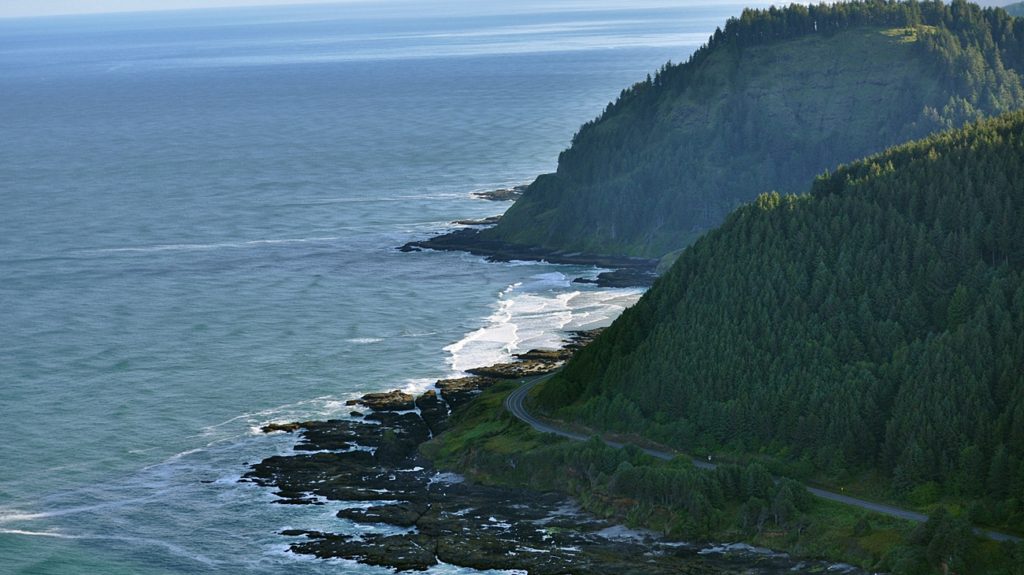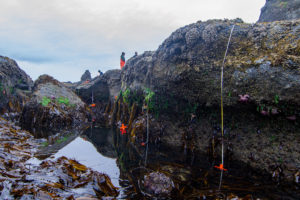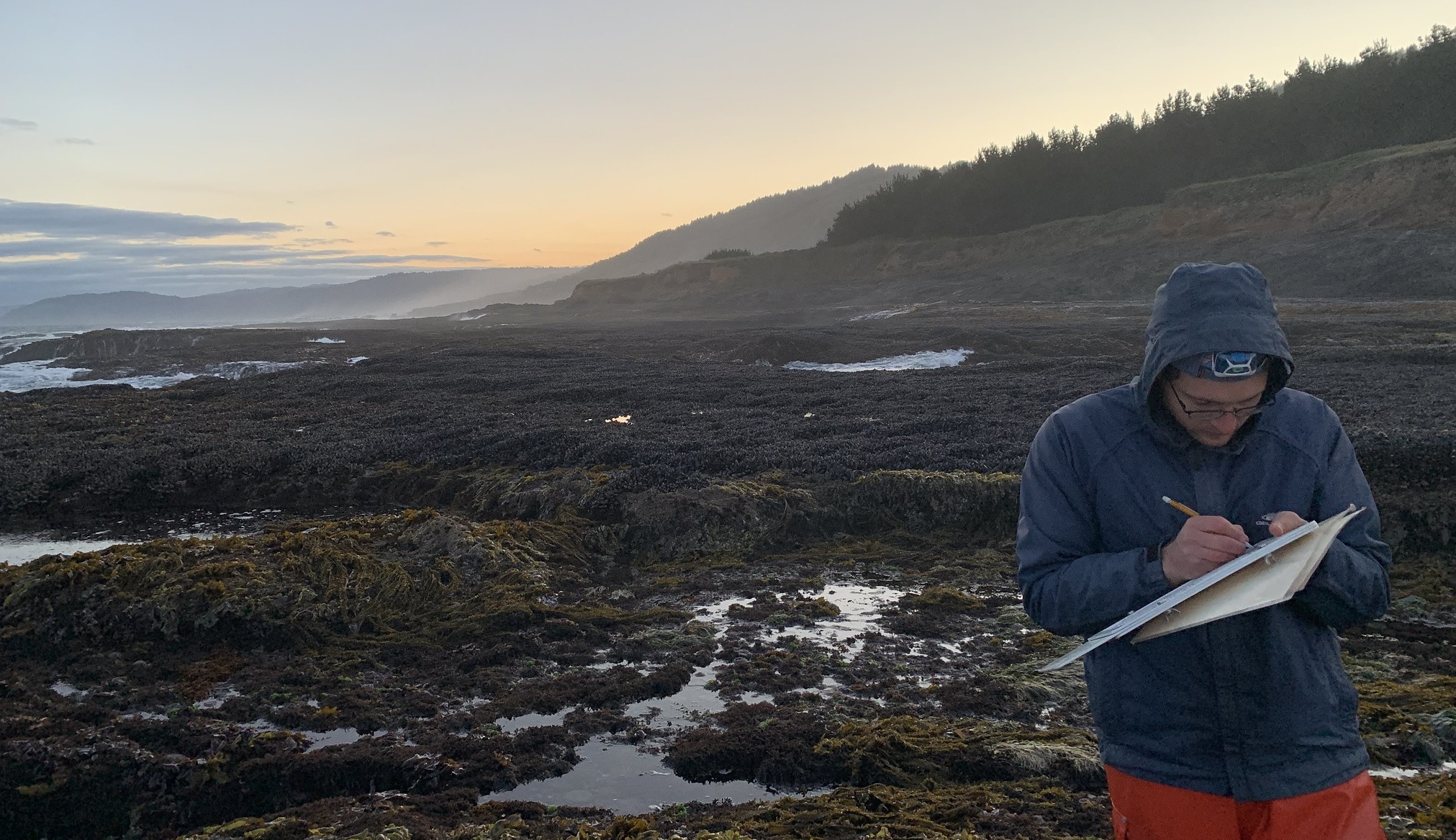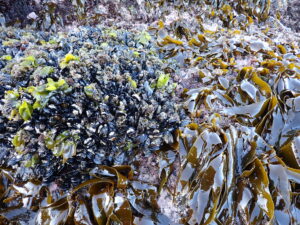
By LYNNE TERRY/Oregon Capital Chronicle
Marine plants and animals on the Pacific Coast have been hit by an epidemic and devastating heat wave over the past decade, and some have not bounced back, a new study found.
The research by scientists at Oregon State University has implications for the planet — a properly functioning ocean is crucial for a healthy planet, and an imbalance among marine species not only affects that ecosystem but can also touch people, they said.
The study, which started in 2004, looked at 13 sites spread among Cape Perpetua near Yachats, Cape Foulweather north of Newport, Cape Blanco on the southern coast and California’s Cape Mendocino. The rocky shoreline areas have a wide diversity of species that are stationary and the areas are relatively accessible, making a long-term study feasible.
Although the research is ongoing, the findings are from 2004 to 2020. During that time, researchers noted major changes in marine species at the study sites following a heat wave in the Pacific Ocean between 2013 and 2015 that lasted more than 700 days, making it one of the longest recorded on Earth. Dubbed the Blob, the heat wave stretched from the Gulf of Alaska to Baja California and affected ocean water from the surface to a depth of 460 feet.
The entire food chain was affected, including phytoplankton, which are at the bottom of the food web. While some populations like seaweed, which is particularly susceptible to rising temperatures, declined, the numbers of phytoplankton increased, including several types that produce toxic chemicals.

In addition to the heat wave, the coast also was hit with a devastating starfish epidemic – sea star wasting disease – that decimated those populations while benefiting certain invertebrates like mussels.
“Sea stars are like the wolves of rocky shores because they normally eat enough mussels and barnacles to prevent these invertebrates from dominating the lower elevation areas,” said Zechariah Meunier, an OSU doctoral graduate and the lead author of the study. “And many kelps did not survive the thermal stress during the heatwave.”

Species fail to recover
The study found that after the epidemic ended and ocean temperatures cooled, conditions did not return to normal. Certain species of starfish did not recover. And though mussels proliferated as a result, these invertebrates are also not immune to climate change, suffering from the acidification of the ocean and warmer air temperatures, Meunier said.
Researchers said their data indicates a low resilience to certain aspects of climate change.
That does not bode well for the future, Meunier said.
“A warming climate will make restoring baseline conditions more difficult,” he said.
The study, published in Nature Ecology & Evolution and funded by the National Science Foundation. Along with Meunier, OSU professors Sally Hacker and Bruce Menge have been studying Northwest coastal ecosystems for decades.

Imbalances in the ocean and shores stretch well beyond marine life to coastal and other communities. The ocean produces half of the oxygen that people breathe and serves as a carbon dioxide sponge, absorbing about one-quarter of the harmful emissions released into the environment. Seaweed, in particular, capture and store a high amount of carbon, Meunier said.
Besides climate change, the researchers said that pollution is also a problem for marine ecosystems, creating harmful algal blooms, ocean acidification and low oxygen conditions known as hypoxia. Climate change and pollution also exacerbate each other, creating unprecedented damage.
Meunier said the findings fit into a wider fabric of research on the impact of warming temperatures and loss of predators like starfish on ecosystems. The negative effects stretch to people, including a loss of commercial fishery habitat.
The source of the problem is people, Meunier said.
“Like many environmental issues, I find it all comes back to reducing our greenhouse gas emissions, using resources sustainably and protecting critical habitat – not for use by humans but for use by other species,” Meunier said.
- Oregon Capital Chronicle is a nonprofit Salem-based news service that focuses its reporting on Oregon state government, politics and policy.





















But don’t pay any attention to the two huge energy farms being built in our ocean off the Oregon coast that our government says will have minimal effect on our ocean and marine life.